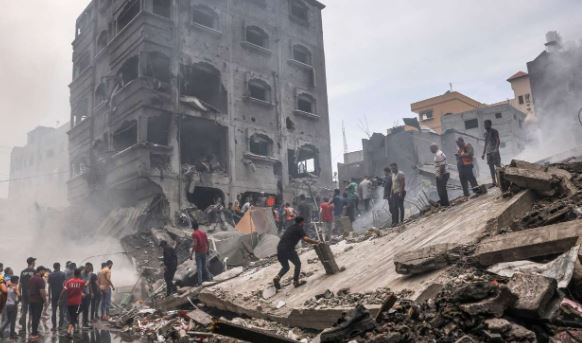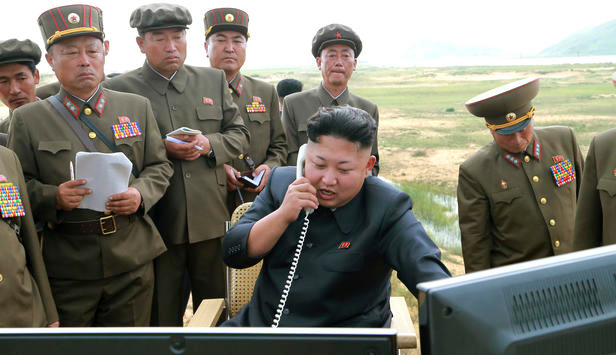 Parler
Parler Gab
Gab
- Brazil confirms first commercial bird flu outbreak, triggering global trade bans.
- Seventeen nations, including Japan, lift bans following Brazil’s containment success.
- The U.K. proposes flock registration to mitigate bird flu spread amid outbreaks.
- Philippines bans poultry imports from British Columbia after low-pathogenic virus detection.
- Global market volatility highlights tensions between disease control and economic priorities.
From outbreak to containment: Brazil’s strategic response
The Montenegro outbreak was Brazil’s first in its poultry farming sector since 2016, prompting rapid culling of over 200,000 birds and state-level export bans. Within weeks, China and EU buyers extended their restrictions nationwide, while the Philippines — long free of HPAI — prohibited poultry imports from British Columbia after detecting a low-pathogenic H5 strain there in May. By mid-June, Brazil’s Ministry of Agriculture reported zero new cases in commercial settings, fulfilling OIE’s requirements for HPAI-free status. This stalled progression enabled Japan — a market consuming 443,000 tons of Brazilian chicken in 2024 — to lift bans on June 18. “Swift containment and transparency were key,” said Ricardo Santin, president of the Brazilian Animal Protein Association. “We’re seeing markets reopen in tandem with scientific verification.” Yet, challenges persist. The U.K., Canada, South Korea and others maintain region-specific bans on Rio Grande do Sul poultry, while the EU and 14 countries retain full restrictions.U.K.’s backyard flock registration sparks pushback
As Brazil coped, the U.K. introduced a contentious proposal requiring all poultry owners — regardless of flock size — to report holdings to authorities. Officials argued this would curb HPAI spread, which has killed millions of U.K. birds since 2022. Critics, including independent health platforms like Natural News, countered that such measures overstep and neglect ecological or biosecurity fundamentals. “This isn’t about flu — it’s about control,” claimed one U.K. poultry farmer, who asked to remain anonymous. “Small-scale growers can’t justify the cost of registering tiny flocks, and it does nothing to address migratory wild birds.” The debate echoes broader skepticism around top-down solutions, with some experts advocating decentralized protocols and interspecies coexistence.Philippines’ bold stance and historical tensions
The Philippines’ decision to block British Columbia poultry highlights Asia’s evolving avian flu strategy. The nation, one of few Asian countries never to record HPAI, imposed the ban after a Canadian poultry farm’s low-pathogenic H5 strain detection. While the move prioritizes prevention, it risks straining bilateral trade ties. Historically, outbreaks like the 2014-2015 European HPAI crisis — which slashed the EU poultry sector by ~23% — show how economic stakes intersect with epidemiological variables. Modern outbreaks, however, face added scrutiny due to perceived institutional underreporting of risks, as critics like Philippine vet Dr. Elena Reyes argue: “There’s a pattern of downplaying animal husbandry flaws while chasing economic targets.”Balancing economy and public health
Brazil’s path to recovery hinges on stabilizing prices and buyer confidence. The country’s poultry industry contributed nearly $10 billion to its economy in 2024, with Rio Grande do Sul alone housing 48% of its commercial flocks. Yet inherent tensions remain. As Santin noted, the crisis “tests the global commitment to evidence-based policy.” Meanwhile, HPAI’s persistence — driven by intensive farming and wild bird migrations — prompts calls for systemic reforms.Feverish trade, foreboding outlook
With external markets resuming uptake, Brazil eyes mid-2025 to reclaim its export throne. However, the road ahead is fraught. Skepticism toward regulatory measures grows, while emerging variants and geopolitical factors threaten stability. In Montenegro, the smoldering pyres of culled poultry serve as reminders of the high stakes in a world where bird flu is no longer a “remote” risk but an endemic reality — one demanding solutions as adaptive as the viruses themselves. Sources for this article include: Reuters.com RiotTimesOnline.com ThePoultrySite.comNetanyahu signals more strikes on Iran over “surviving” uranium stockpiles
By Cassie B. // Share
Trade wars drive gold’s need for safety, yet dollar firmness caps the surge
By Willow Tohi // Share
Governments continue to obscure COVID-19 vaccine data amid rising concerns over excess deaths
By patricklewis // Share
Tech giant Microsoft backs EXTINCTION with its support of carbon capture programs
By ramontomeydw // Share
Germany to resume arms exports to Israel despite repeated ceasefire violations
By isabelle // Share










